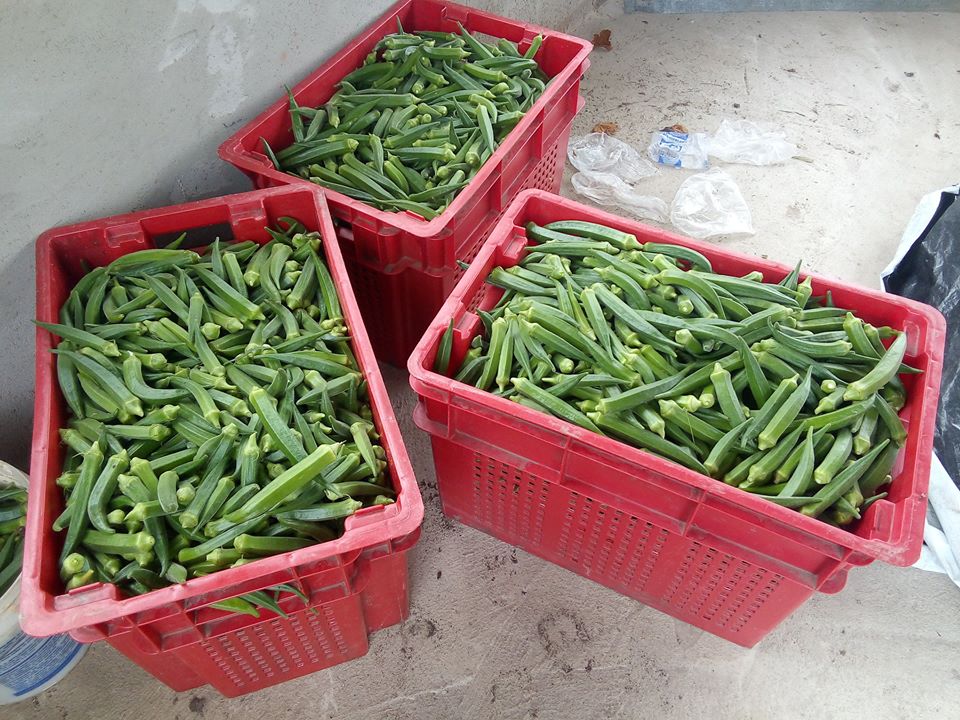
Vegetable value-chain institutions give policy alternative on COVID-19
REPRESENTATIVES of 60 Vegetable Value Chain-associated institutions and networks have called on government to create and support a functional value chain policy that optimises the use of land and water resources to guarantee continuous productivity.
They said such a policy was necessary for the vegetable sector to enable it to facilitate economic growth, improved livelihoods and income, improved nutrition and environmental governance.
According to them, that would also contribute to achieve food security for Africa’s increasing population.
Call to action
Currently, more than 1.6 million people in Ghana are under nourished, 2.3 million face food insecurities, 18.8 per cent of children under the age of five are stunted, and 46.4 per cent of women between ages 15 to 49 years are anaemic.
They, therefore, made a call to action to adopt some resolutions with the aim of promoting a vegetable value chain policy in ensuring agricultural sustainability, responsive food systems and healthy eating behaviours for national and global food security.
According to representatives, the value chain policy should form part of a larger coordinated and integrated strategy which would help improve the sustainability of agriculture and food systems that were responsive to the needs of the various value chain systems.
SDGs
The group pledged their commitment to the Sustainable Development Goals (SDGs) of the United Nation’s and the African Union’s 2030 Agenda on agricultural-based industrialisation.
They also supported the agenda to improve nutrition and the sustainable use of natural resources, including the control of biocide contamination and chemical pollution with its associated adverse effects on climate change.
Demand for Horticulture
The group further underscored the need for government to support horticulture facilities as part of the value chain policy to provide funding for farmers in both domestic and continental vegetable demands for a variety of vegetable commodities.
Additionally, they asked that there should be budgetary arrangements for Civil Society Organisations (CSOs) to educate consumers on green-labelled vegetables to drive demand and to motivate producers to supply safe and environmentally friendly horticultural commodities from certified sources only.
They also added that vegetable commodity value chains should be increasingly integrated and interdependent across sectors, ministries, agencies and markets.
Support System
The association recognises the importance of conflict-free fertile lands and high quality seed to vegetable production.
For that matter, the representatives believe that adequate support from stakeholders will improve food security and promote improved nutrition while improving livelihoods.
They further accepted to contribute and promote training and certification of farmers, input dealers, exporters and market leaders, with varied expertise on demand creation and adherence to safety and green label certification for all horticultural commodities.
Way Forward
They have thus called on government to resource the CSIR-Crop Research Institute and other research institutions with similar mandate to conduct valid research on vegetables.
This, they believe, will facilitate seed availability by releasing high vegetable varieties which are adaptable and resistant to biotic and abiotic stresses.
They also implored MMDA departments of agriculture to collaborate with traditional authorities to establish land banks and pilot centres to help promote vegetable production.
They further entreated government to establish industrialised agri-parks and national agricultural technology development centres in various regions to serve as a hub for local and exportable green-certified fresh processed horticultural commodities.
Meanwhile, they further craved support for the coordination by the Agency for Health and Food Security and its members in connecting vegetable farmers to other value chain actors for information sharing, contract farming, input management, food safety compliance, among others.
Conclusion
The association finally called on government to oblige all farmers, input dealers and all other vegetable value chain actors to form or join associations and networks for effective identification, tracking and support.
That, they said, would ensure targeted training, technology transfer, resource allocation, project implementation and research.